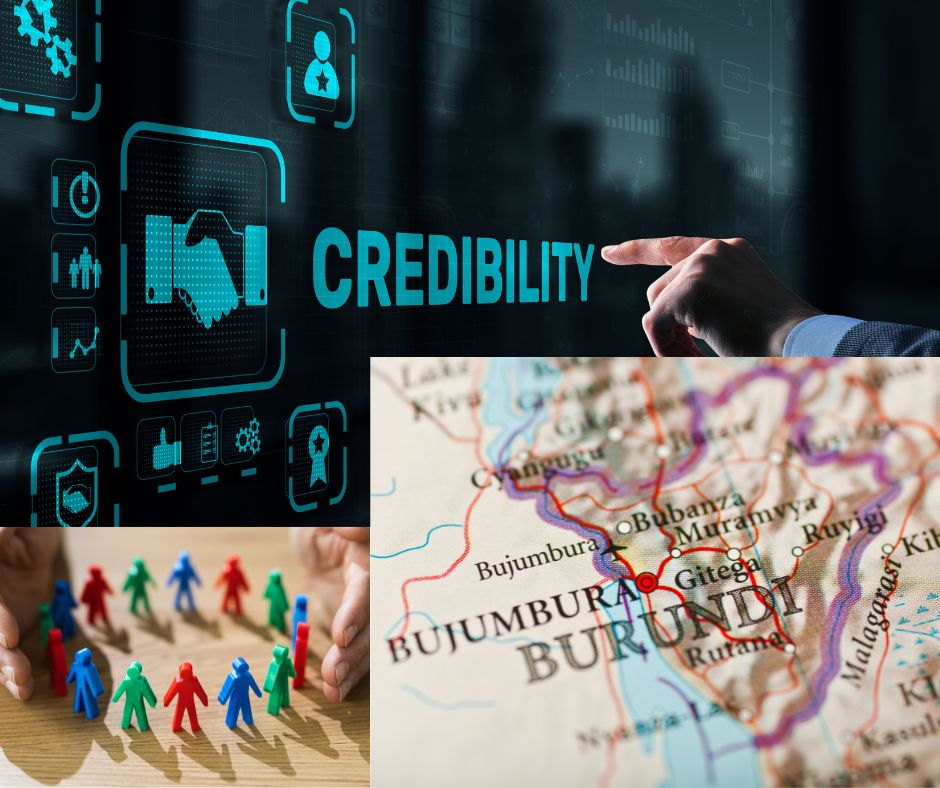
According to Fortuné Gaétan Zongo, appointed on April 1 as the Special Rapporteur on the status of human rights in Burundi, the government’s commitments and actions have not resulted in a significant and long-lasting improvement in the country’s human rights situation.
He mentioned this while delivering his first report to the Human Rights Council: “It is important and urgent to undertake reforms and a genuine and inclusive democratic process in Burundi to avoid a recurrence of past cycles of violence.”
The expert urged for more extensive institutional reforms in his report and emphasised the responsibility for accountability that has existed since the 2015 crisis.
The contentious decision of the incumbent president, Pierre Nkurunziza, to run for a third term in office in 2015 sparked widespread unrest and an attempted coup. After that, there were years of brutal repression, which included widespread arrests, detentions, executions, torture, and intimidation. Many thousands of people were displaced.
The UN Commission of Inquiry on Burundi stated last year that severe abuses persisted despite a decline in political violence following the 2020 elections.
Discretionary prosecutions
The Special Rapporteur emphasised that Burundi promised to develop a fair and transparent judicial system by international norms and accepted proposals to combat impunity in its 2018 Universal Periodic Review.
Adopting priority actions to stop human rights breaches, make amends, and put treaty bodies’ special procedures and the Commission of Inquiry on Burundi’s recommendations into practice were also recommended.
Nevertheless, he raised to worry about the selective impunity in pursuing alleged perpetrators of significant violations in favour of focusing primarily on minor offences, emphasising the commencement of attempts to pursue perpetrators of human rights violations.
The right to an effective remedy has been violated in only a small number of complaints involving serious violations, according to Mr Zongo. “The few cases of complaints of serious violations have rarely resulted in impartial investigations, and even more rarely in the prosecution and conviction of perpetrators,” he said.
Boost your commitments
The Special Rapporteur advised Burundi to ratify the International Convention for the Protection of All Persons from Enforced Disappearance and called for concrete actions by pertinent international legal instruments, given the number of pending cases before the Working Group on Enforced or Involuntary Disappearances and numerous reports on enforced disappearances.
The UN expert remembered that to solidify peace and reconciliation, truth commissions have to be independent and seen by all parties as such.
He was frustrated by the slow pace of the transitional justice measures’ reforms in the security and justice sectors and the areas of accountability, restitution, and land restitution.
Confined areas
The report emphasises challenges faced by human rights advocates, many of whom have fled into exile. It lists limits on civic space as barriers to meeting for opposition political parties and labour unions.
The Special Rapporteur regretted regulations on foreign non-governmental organisations and press restrictions that restrict democratic space and reinforce government control, noting that human rights organisations operate in an environment of fear of retaliation.
Mr Zongo emphasised that the Independent National Commission on Human Rights, a national organisation with “A status” for protecting and advancing human rights, is constantly fighting to promote fairness in Burundi.
He encouraged the Burundian government to ensure its formal and material independence and provide the tools it needed to carry out its mandate.
Human exploitation
Burundi’s judiciary has started several investigations and prosecutions of alleged offences, convicted traffickers, and referred victims for aid to lessen human trafficking.
Additionally, the nation adopted a statute to control immigration and institutionalised anti-trafficking training for law enforcement personnel.
The Special Rapporteur reaffirmed his readiness to work with the Government to uphold human rights and find solutions to the nation’s issues.
Additionally, he emphasised his desire to travel to Burundi and speak with the appropriate officials and institutions.
The UN Human Rights Council in Geneva appoints Special Rapporteurs to investigate and provide a report on a country’s situation without receiving payment from the UN. These are honorary posts.
Analysis by: Advocacy Unified Network
